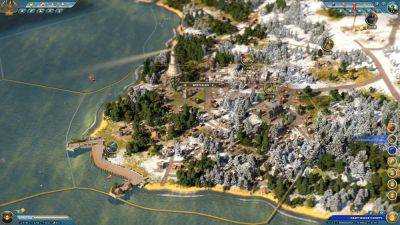SpaceX Pushes Falcon 9 Rocket To The Edge In Rare & Risky Landing
This is not investment advice. The author has no position in any of the stocks mentioned. Wccftech.com has a disclosure and ethics policy.
SpaceX completed a rare rocket landing today, which saw the firm land its Falcon 9's first stage rocket booster in the Atlantic Ocean after flying it faster than it typically does. This was one of the most strenuous landings for the workhorse Falcon 9 rocket, which has more than 300 landings in its flight history.
The booster landed on a SpaceX drone ship in the Atlantic Ocean after it launched the European Commission's Galileo navigation satellites to a medium Earth orbit (MEO). This mission was SpaceX's 90th mission of the year, and yet another one where the firm managed to successfully recover a rocket booster.
Related Story SpaceX’s Private Polaris Dawn Astronaut Sees “A Perfect World” As He Steps Into Space
SpaceX Falcon 9 Endures More Than 700 Km/h Of Additional Reentry Speed After Sending Satellites To MEO
Today's mission followed an April launch of a Galileo satellite, which saw SpaceX expend its Falcon 9 rocket due to the high energy requirements of the mission. According to SpaceX's presenter today, while the booster was not recovered, "the data from that mission was still used to help inform changes that will allow us to safely recover and reuse the booster for today's launch."
The Falcon 9 lifted off on time from the Cape Canaveral Space Force Station in Florida at 6:50 p.m. Apart from the booster landing and payload separation, the launch was a typical affair. Falcon 9 first stage separated from the second stage at the two and a half minute mark after liftoff. The mission flew two Galileo satellites to MEO, with each satellite weighing roughly 700 kilograms. They will be deployed to an orbit of roughly 23,200 kilometers, according to SpaceX.
After it separates from the second stage booster, the Falcon 9 first stage continues to gain altitude, during which its speed decreases. After it reaches its peak, the rocket







